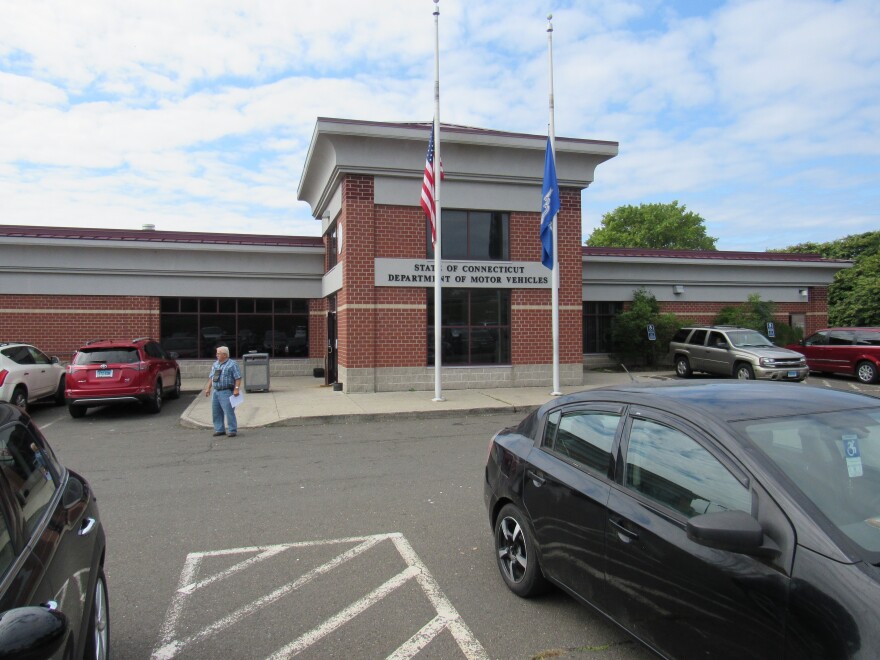In Connecticut the two major party candidates running for governor are promising to fix the state’s Department of Motor Vehicles. Democrat Ned Lamont says he’d improve customer service by upgrading technology at the DMV. Republican Bob Stefanowski would like to privatize the agency.
“The government controls the DMV. How’s that working out for us? [laughter] We need to provide more competition,” Stefanowski said at at a debate this week.
WSHU’s Ebong Udoma visited the Bridgeport DMV to see what privatization might change.
Visitors to the Bridgeport DMV are used to experiencing long lines. One customer said she had prepared to wait half a day.
“Today it was really good. You know, it’s been only a little bit over an hour. So it’s really, really good,” said Grace Danek Madinska of Stratford.
But not everyone is as lucky as Madinska.
Jayquan Brooks from Norwalk says the DMV needs to change because right now it’s, “Frustrating, sitting here for hours on end, waiting for a particular thing like an ID. You know, I understand what people have to go through registering their car and everything. And that might take a while in the process. But when I’m getting an ID, I expect to get in and out, you know?”
James Royal of Shelton is also frustrated, but he’s skeptical that Republican gubernatorial candidate Bob Stefanowski’s proposal would work.
“You know as far as privatizing, I don’t know that that will do any better. You know, at least right now the voters can hold them accountable. If you privatize it, why trust the government to monitor anything? They don’t do a good job at it.”
Other states have tried privatizing the DMV. New Jersey did it in the mid-1990s. But by 2002, the state found that privatization had resulted in poor, disjointed and confused service. There was also high employee turnover because of poor pay. The next year the DMV was back under state control.
Larry Dorman, a spokesman for the union that represents Connecticut DMV workers, says the same would happen in Connecticut.
“It would cost taxpayers more in the long run and it would also displace hundreds, if not thousands, of middle class workers, who live in Connecticut, who pay taxes, and provide a valuable and important service.”
Dorman says if Stefanowski got elected he would probably not be able to implement privatization of the DMV before 2021. That’s when the current state employee union contract would expire.


